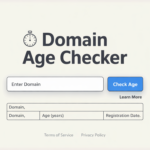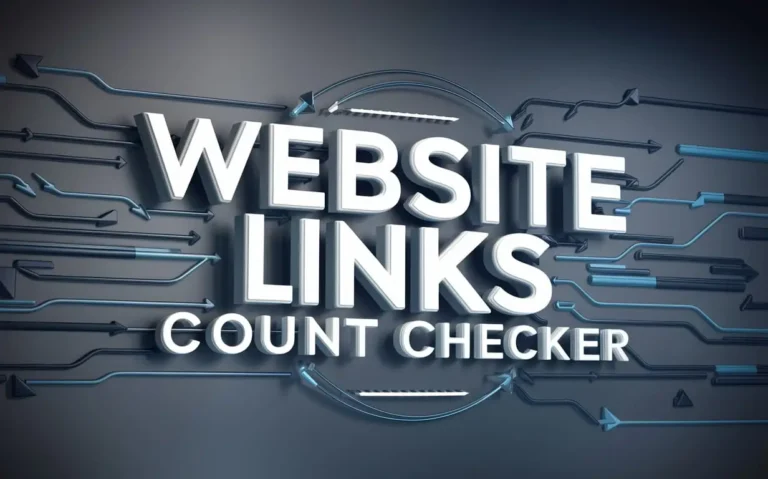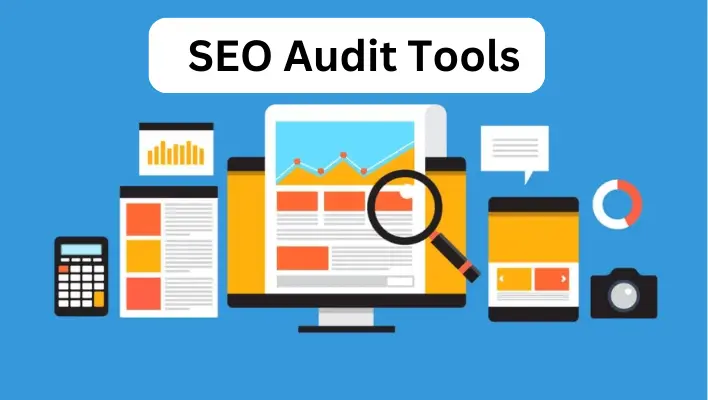How to Use a Google Index Checker to Boost Your SEO | Ensure Your Pages Are Indexed!
Are you wondering how to check if your web pages are indexed in Google? A Google Index Checker is a valuable tool that allows you to verify whether your site’s pages are indexed by Google, which is crucial for improving your website’s visibility and search engine rankings. This article will guide you through the process of using various index checkers, troubleshooting indexing issues, and optimizing your site to ensure your pages are indexed effectively.
Contents
Understanding Google Indexing

A. What is Google Indexing?
Google indexing is the process by which Google analyzes and stores information from web pages in its database. When a user performs a search, Google retrieves relevant pages from its index based on various factors, including content relevance and quality.
B. Why is Indexing Important for SEO?
Indexing is critical for SEO because only indexed pages can appear in search engine results pages (SERPs). If your pages are not indexed, they won’t rank, resulting in lost traffic and potential customers.
What is a Google Index Checker?
A. Definition and Purpose
A Google Index Checker is a tool that allows you to check if your web pages are indexed in Google. It helps you identify which pages are indexed and diagnose any issues that may prevent your pages from being indexed.
B. Types of Index Checkers
Several tools can help you check the indexing status of your website. Here’s a comparison of some popular options:
| Tool | Features | Cost |
|---|---|---|
| Google Search Console | Official tool, detailed reports, performance data | Free |
| Ahrefs | Comprehensive SEO analysis, site audit | Paid |
| SEMrush | Keyword tracking, backlink analysis | Paid |
| Screaming Frog | Desktop tool, crawling capabilities | Free (limited) |
| Small SEO Tools | Simple interface, checks multiple URLs | Free |
How to Check if Your Page is Indexed in Google
A. Using Google Search Console
Google Search Console is one of the best tools for checking your site’s indexing status. Here’s how to use it:
- Sign in to your Google Search Console account.
- Navigate to the “Coverage” report.
- Review the list of indexed and non-indexed pages.
B. Manual Method to Check Indexing
Another simple way to check if your page is indexed is by using the search operator:
bashCopy codesite:yourdomain.com/yourpage
Replace “yourdomain.com/yourpage” with the actual URL you want to check. If the page appears in the search results, it is indexed.
C. Using Third-Party Index Checkers
You can also use various third-party index checkers. Tools like Ahrefs, SEMrush, and Screaming Frog offer features to analyze your website and identify indexing issues. Each of these tools provides unique insights that can help you understand your site’s performance.
Checking Google Cache for Your Website
A. Importance of Google Cache
Google Cache refers to the stored version of a webpage that Google keeps in its database. Checking the cached version can provide insights into how Google sees your page and can help you identify if your content is up to date.
B. How to Check Google Cache
To check the cached version of a page, use the following search operator:
bashCopy codecache:yourdomain.com/yourpage
This will display the cached version of your page, allowing you to see how Google indexed it.
Troubleshooting Indexing Issues
A. Common Reasons for Non-Indexing
Several factors can prevent your pages from being indexed, including:
- Robots.txt File: If your robots.txt file disallows crawling, your pages won’t be indexed.
- Noindex Tags: Pages with a “noindex” meta tag will not be indexed by Google.
- Penalties: If your site is penalized, it can lead to de-indexing.
B. How to Resolve Indexing Problems
To fix indexing issues, consider the following steps:
- Check Robots.txt: Ensure your robots.txt file allows indexing.
- Remove Noindex Tags: If you want a page indexed, make sure it doesn’t have a noindex tag.
- Submit a Reconsideration Request: If penalized, fix the issues and request reconsideration through Google Search Console.
Best Practices for Ensuring Proper Indexing
A. Regularly Monitor Index Status
Make it a habit to regularly check the indexing status of your pages. This helps you catch any issues early on.
B. Optimize Your Site for Crawlers
To ensure proper indexing, optimize your site’s structure and speed. A well-structured site makes it easier for crawlers to navigate and index your content.
C. Submit Sitemap to Google
Submitting a sitemap through Google Search Console helps Google understand your site structure, improving indexing.
D. Keep Content Fresh and Relevant
Regularly update your content to ensure it remains relevant and engaging. Fresh content can lead to better indexing and improved rankings.
Conclusion
In summary, using a Google Index Checker is essential for maintaining your website’s visibility in search results. Regularly monitor your site’s indexing status and follow best practices to ensure your pages are indexed properly.
Are you ready to boost your SEO? Check your site’s indexing status now and make necessary adjustments!
FAQs
What is the best Google Index Checker tool?
The best tool depends on your needs. Google Search Console is free and comprehensive, while tools like Ahrefs and SEMrush offer more in-depth analysis.
How often should I check my website’s index status?
It’s advisable to check your site’s index status at least once a month or after significant changes to your content or structure.



















